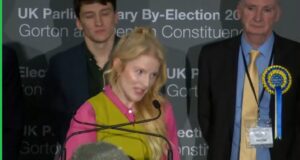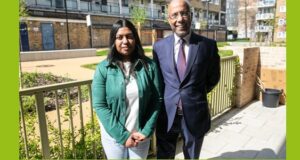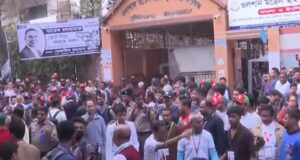ELN: The Metropolitan Police’s service has been “necessarily degraded” as nine out of 10 staff who handle 999 calls are taking part in strike action, its commissioner said.A total of 335 police officers were taken off the beat to answer phones in London to deal with the impact of the industrial action.Sir Paul Stephenson said 75% of police staff based at the Houses of Parliament had also failed to report for duty.About 1,100 schools were also shut.In total, 312 of the 335 police staff due on shift to answer phones were on strike, the Met said, with the average 999 call ringing for 50% longer than usual.Scotland Yard had contingency plans in place for receiving calls, with supervisors and police officers answering phones, Sir Paul told a meeting of the Metropolitan Police Authority.But because of the sophistication of the equipment used, the task was proving “much more challenging” than normal, he added.Police officers are banned from taking industrial action but civilian police staff are not.
Three teaching unions joined members of the Public and Commercial Services (PCS) union in striking.Thousands of protesters marched from Holborn to a rally in Westminster.The government said the plans for staff pensions were “fair to taxpayers”.And other trade unions were continuing to negotiate over the matter, it added.Crowds gathered on Thursday morning at Lincoln’s Inn Fields and have been walking down The Strand and around Trafalgar Square on their way to a rally at the Methodist Central Hall, near Parliament Square.Police said 41 people were arrested – six of them overnight at Trafalgar Square – for a variety of offences including possession of drugs, criminal damage and breach of the peace.One police officer and six members of the public were injured, Scotland Yard added, with the officer being discharged after receiving medical treatment.
Figures collated by BBC London on the capital’s schools suggest 1,111 shut out of a total of 2,418, meaning 46% closed for the day.One of the worst-hit boroughs was Camden, in north London, where only four of the 58 schools fully opened, while in Redbridge, east London, all but five of the borough’s 72 schools were disrupted.Fewer than 300 primary and secondary schools and nurseries across London ran classes as usual.Mayor Boris Johnson had sent a letter to the capital’s head teachers urging them to keep schools open.Mr Johnson repeated his call for laws to impose a minimum threshold on strike ballots before industrial action could be taken.Civil servants, job centre staff and UK Border Agency employees also staged strikes over pension changes.
Heathrow Airport said passengers had not experienced “significant” delays at border control and contingency plans were “working well”.Gatwick said there were “very slight delays” while Luton reported disruption had been kept to an “absolute minimum” and Stansted said passengers were not seeing delays.No Jobcentre Plus offices in London had closed, the Department for Work and Pensions said.Members of the National Union of Teachers (NUT) and Association of Teachers and Lecturers (ATL) said the proposed changes to pensions meant they would have to work longer and pay more and would have less when they retired.The Department for Education said the strike was premature, would damage pupils’ learning and inconvenience busy, working parents.Education Secretary Michael Gove said he felt “disappointed” about the strike, even though there were “really strong feelings about pensions”.Labour leader Ed Miliband said the walkouts were “wrong” at a time when negotiations were continuing, but said the government had acted in a “reckless and provocative manner” over pensions.
 East London News A Force for the community…
East London News A Force for the community…




